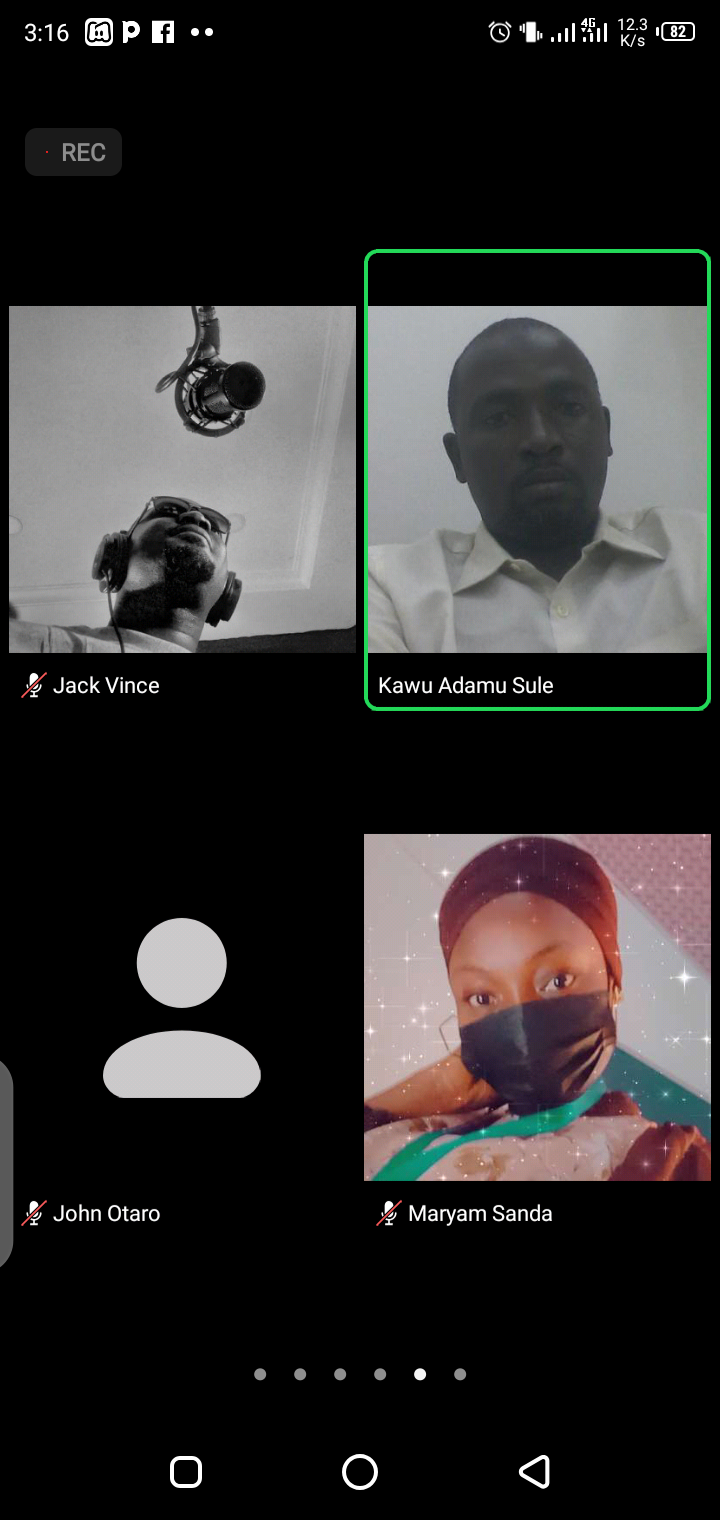
REPORT OF A MONTHLY DIALOGUE ON ANTI CORRUPTION FIGHT IN NIGERIA ORGANIZED BY
THE CENTRE FOR INFORMATION TECHNOLOGY AND DEVELOPMENT (CITAD) ON THE 22 nd OF
SEPTEMBER, 2022 VIA ZOOM
The Centre for Information Technology and Development had on 22 nd September, 2022 under
its project on Mobilizing and Catalyzing Citizens Action for Accountable Election and
Governance in Nigeria supported by MacArthur Foundation held its Eighth Dialogue on Anti-
Corruption Fight in Nigeria with two of its sub-grantees; Abubakar Sadiq Mu’azu, Executive
Director, Center CATAI and Chioma Agwuegbo, Executive Director, TecHerNG while Dr. Kawu
Adamu Sule, PhD, Lecturer, Department of Sociology, Bayero University, Kano served as the
moderator. As it has become tradition in the Centre that every month it’s conducting the
dialogue, in the month of August, the Centre hosted Mu’azu Alhaji Modu, Executive Director,
Spotlight for Transparency and Accountability Initiative and Adeola Fayehum, Producer at
Keeping it with Adeola with Malam Haruna Adamu, Community Network Coordinator at CITAD
as the moderator.
The dialogue started with an opening remarks by the Executive Director of CITAD, Yunusa Zakari
Ya’u. Mr. Ya’u begin his remarks with aim of organizing the monthly dialogue where he stated
that; the aim of the dialogue is to give the sub-grantees under this project an opportunity to
regularly share their work with a wider audience in promoting accountability and fighting
corruption in Nigeria. He also mentioned that the dialogue is aimed at giving both the sub-
grantees and young people who have interest in the area an opportunity to discuss and share
ideas. He went further to state that CITAD has for many years been working in the area of
accountability and fighting corruption in Nigeria and empowering young people to demand for
good governance. Buttressing further on the essence of organizing the monthly dialogue, the
Executive Director said is to create a platform for the sub-grantees and those who have an
interest in the area to discuss ideas and learn from each other as corruption and lack of
accountability are the major obstacles towards the country’s growth and development”.
Opening the dialogue, the chairman of the September dialogue, Dr. Sule Rano said that Nigeria
needs transparent and accountable government and platforms like this one will helps in
ensuring government officials are put on their toes. He further stated that “accountable
election is key to good governance and democracy” and in a good democracy citizens must be
allowed to choose/elect their leaders. “This situation can only be achieved through accountable
and transparent election”. Dr. Sule buttressed.
The first speaker was Abubakar Mu’azu, Executive Director Centre for Advocacy and
Accountability Initiative. Mr. Mu’azu started his presentation by emphasizing the need for
accountable election and ensuring strict adherence to democratic process in electing leaders in
all positions and for citizens to understand their responsibilities in electing competent and
credible leaders. For the upcoming 2023 elections, Mr. Mu’azu shared with the participants the
efforts his organization is making in the area of empowering citizens with access to information
and amplifying their voices. The Executive Director stated that at Centre CATAI, they have been
creating awareness on the need for the citizens to participate in the elections, renew their
Permanent Voters’ Cards, the need to engage in the electoral processes; from primary to
secondary elections. He went further to state that even though Borno State has fewer people in
terms of PVC collection, but still citizens are campaigning and raising their voices in holding
government accountable due to intensify campaigns around the area by Civil Society Actors in
the state.
Speaking about the need for young people to actively engage and participate in the governance
and affairs of their country, the executive director said “young people need to advocate for the
inclusion of youth in leadership position and ensure their voice is heard for majority of the
voters in the country are youth”
Discussing on the activities they embark on, he said, Center CATAI has started shooting short
videos with young people and the essence of that is to change the perspective of the citizens
and how people can engage the government officials. According to him, the major target of the
campaign is young people because they constitute the highest number among all the other
constituency. On the tools they are using to reach their target audience, Mr. Mu’azu said they
mostly use Social Media because it is faster and easier to reach young people and encourage to
do what is good. Abubakar also explained that the focus of the campaign of recent is to
empower young people to have access to the right information, collect their PVCs and ensure
they elect the right leaders that will ensure accountability and transparency in governance,
enhancing and making quality education and serve the need of the citizens through different
initiative, advocacy, and engagement after the election.
Stressing the need of collaborative efforts, Mr. Mu’azu said to ensure the sustainability of such
kind of initiative and its success, citizens must accept it and take ownership of the process and
ensure sustained advocacy around having accountable government that will provide evidence
of democracy.
Also speaking at the dialogue, the Deputy Country Director of MacArthur Foundation, Oladayo
Olaide hailed CITAD for organizing and coordinating the discussion which he described as timely
and encouraging. Mr. Olaide went further to say that there is need to find ways on how to
include accountability into the discourse around 2023 general election and other important
issues that are significant to the election and try to rally out and speak out those issues. He also
advised and encouraged people working in this area to ensure as much as possible remain
neutral in the implementation of their activities
At the end of the dialogue participants asked questions and answers were provided by the
panelist.





